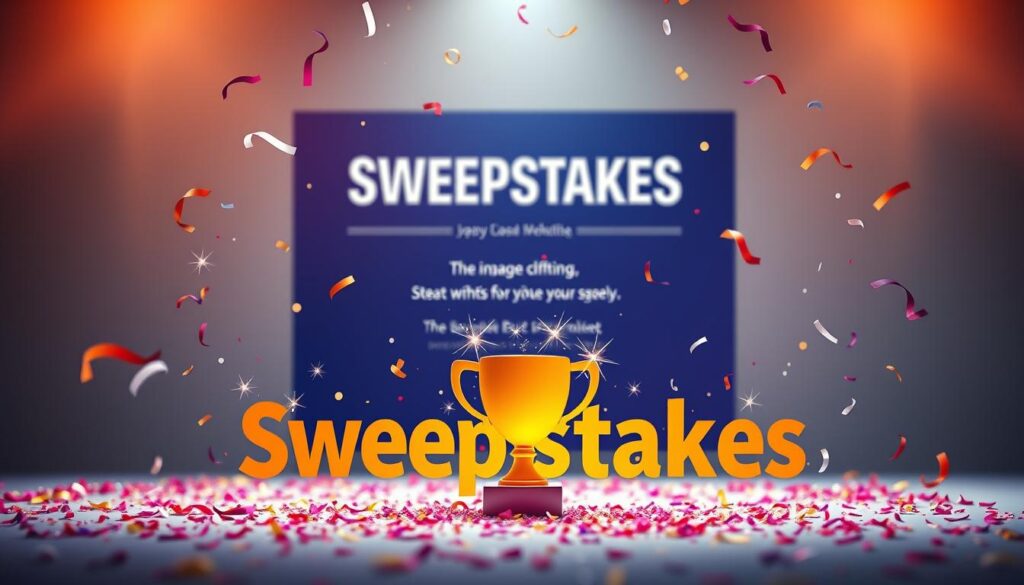Contests and promotional campaigns have shaped modern marketing strategies for over a century. Brands leverage these tactics to spark interest, reward loyal customers, and connect with broader audiences. When executed effectively, they drive measurable results like website traffic growth and lead generation.
Over time, promotional campaigns evolved from simple giveaways to sophisticated engagement tools. Today’s marketers use them to strengthen brand loyalty and target specific demographics. The right approach can turn casual participants into long-term customers while boosting sales initiatives.
Choosing between professional management and in-house execution depends on multiple factors. Resource availability, technical expertise, and campaign scale all influence this decision. External services often streamline compliance, prize distribution, and analytics—critical elements for maximizing ROI.
Strategic planning remains essential for success. Clear goals, audience alignment, and creative incentives separate impactful campaigns from overlooked efforts. Dispelling myths about complexity or low returns helps businesses unlock the full potential of these marketing mechanisms.
Key Takeaways
- Promotional campaigns boost engagement and customer retention
- Modern strategies integrate audience targeting and data analysis
- Professional services reduce administrative burdens
- ROI depends on clear objectives and compliance
- Effective campaigns strengthen brand visibility
Understanding Sweepstakes and Contest Marketing
Effective brand promotions balance creativity with regulatory compliance. Three primary formats dominate this space—each with distinct operational frameworks and legal implications.
Structural Foundations of Promotional Models
Random selection defines sweepstakes, where participants gain equal winning opportunities without demonstrating specific abilities. This contrasts with contests requiring creative submissions or problem-solving skills. For example, photography competitions judge technical expertise, while essay contests evaluate storytelling prowess.
Lotteries occupy a separate category due to mandatory financial contributions. Unlike promotional giveaways, these government-regulated systems permit ticket sales for revenue generation. Misclassifying campaigns risks severe penalties—a Rhode Island jewelry brand faced $12,000 fines for neglecting pre-registration rules on $800 prize packages.
Regulatory Landscapes Across States
Vermont’s Consumer Fraud Act prohibits requiring stamped envelopes for participation, while Maryland mandates winner lists for prizes exceeding $25,000. Federal guidelines add complexity—COPPA restricts data collection from children under 13, impacting youth-oriented campaigns.
"The 'no purchase necessary' clause isn’t optional—it’s the legal backbone separating legitimate promotions from gambling operations."
Campaign designers must verify regional statutes before launch. Partnering with legal professionals often proves essential when operating across multiple jurisdictions or offering high-value rewards.
Designing a Successful Sweepstakes Campaign
Strategic planning transforms promotional efforts from scattered attempts into measurable growth engines. Campaigns combining psychological triggers with precise audience targeting generate 3x higher engagement than generic offers. Research shows contest emails achieve 8.8% open rates—surpassing standard marketing messages by 62%.

Defining Purpose-Driven Targets
Clear objectives anchor every effective initiative. Brands prioritizing lead generation might focus on email sign-ups, while product launches could emphasize social media shares. A cosmetics company increased trial conversions by 40% after aligning prizes with new skincare lines.
Time-bound frameworks prevent audience fatigue. Four-week campaigns with staggered reminders maintain momentum without overwhelming participants. Urgency-driven countdowns boost entry rates by 22% during final days.
Optimizing Outreach Channels
Multi-platform distribution maximizes visibility. Combining Instagram stories with website pop-ups captures attention across browsing behaviors. One athletic wear brand saw 34% new customer acquisition after integrating QR codes into retail displays.
"Campaigns that combine urgency with genuine value see 3x higher participation rates than generic offers," notes a HubSpot marketing report. Data collection methods like preference surveys or newsletter sign-ups must balance informativeness with respect for privacy regulations.
Reward relevance remains critical. Family-oriented brands benefit from vacation packages, while tech companies attract enthusiasts with gadget bundles. Cost-effective prizes maintaining high perceived value drive 68% of repeat engagements in loyalty-focused promotions.
Should You Use Sweepstakes Entry Services?
Businesses planning promotional campaigns face a critical decision: handle operations internally or partner with specialists. This choice impacts legal safety, resource allocation, and campaign effectiveness. Modern platforms now offer tools merging compliance checks with real-time analytics.
Pros and Cons Analysis
Professional management eliminates guesswork in regulatory adherence—a major advantage for multi-state operations. Automated systems handle winner selection and tax documentation, reducing human error risks. However, costs may outweigh benefits for small-scale initiatives with limited prizes.
Technology integration proves invaluable for tracking participation trends. One beverage company improved follow-up campaign engagement by 27% using third-party data insights. Yet over-reliance on external partners might reduce creative control for brands prioritizing unique experiences.
When to Leverage Professional Entry Services
Complex campaigns involving high-value rewards or international participants often require expert handling. A 2023 MarTech survey found 68% of compliance issues arose from businesses managing cross-border promotions internally. Platforms with multilingual support and currency conversion streamline global entries.
"Outsourcing administrative tasks allows marketing teams to focus on storytelling and audience connection."
Resource-strapped organizations benefit most from full-service solutions. Startups launching their first major contest frequently avoid costly legal missteps through managed services. The key lies in matching provider capabilities to campaign scope and long-term marketing goals.
Enhancing Customer Engagement Through Sweepstakes Promotions
Modern brands face intense competition for consumer attention. Strategic promotional campaigns cut through noise by combining psychological triggers with frictionless participation. These initiatives convert casual browsers into invested participants when executed with precision.

Utilizing Urgency and Scarcity for Higher Value
Time-sensitive mechanics activate immediate responses. Countdown timers on entry pages boost participation by 19% in final campaign hours. Limited-edition rewards create perceived exclusivity—travel brands report 33% higher engagement with "first 500 entries" incentives.
Free participation remains powerful. Behavioral studies show 68% of people prioritize no-cost opportunities. This approach removes financial barriers while maintaining compliance with anti-gambling regulations.
"Campaigns blending urgency with authentic value see 4x more social shares than standard offers."
Creating a Seamless User Experience
Mobile-responsive forms increase completion rates by 41%. Multi-channel access accommodates diverse preferences—text entries attract Gen Z, while email submissions appeal to older demographics.
Personalized follow-ups sustain momentum. Brands using entry data to tailor post-campaign messages achieve 27% higher repeat engagement. Simplified sharing options turn participants into promoters, expanding organic reach across social media platforms.
Compliance and Best Practices for Sweepstakes Entry Services
Navigating promotional campaign regulations demands precision. Federal agencies like the FTC enforce strict rules against misleading claims, while postal service guidelines govern mail-in entries. State-level variations add complexity—Rhode Island mandates pre-registration for prizes over $500, unlike most jurisdictions.
Understanding Federal and State Regulations
The FTC's "no purchase necessary" law prevents promotions from becoming illegal lotteries. Brands must provide alternative entry methods like free mail-in forms or online submissions. A 2023 FTC settlement required a tech company to refund $1.2 million for hiding entry instructions in microscopic text.
State-specific requirements create logistical challenges. Florida and New York require registration for high-value campaigns, while Maryland demands winner lists for $25,000+ prizes. Rhode Island's unique filing process involves submitting detailed terms 30 days before launch.
"Failing to disclose odds transparently ranks among the top compliance violations—it's not just unethical, it's illegal."
Avoiding Common Pitfalls in Sweepstakes Campaigns
Many brands stumble by underestimating tax implications. Prize values exceeding $600 require IRS Form 1099 filings—a step often overlooked in small-business campaigns. Time-bound winner notifications prevent legal disputes, with 45 days being the standard window.
Clear eligibility rules prevent participant confusion. A sports apparel company faced backlash after excluding international entries without proper disclosure. Using professional verification services ensures random drawings withstand legal scrutiny.
Regular audits of campaign terms keep operations compliant as laws evolve. Platforms offering automatic updates for state-specific requirements reduce administrative burdens while maintaining cross-border validity.
Conclusion
Effective promotional campaigns transform business outcomes when strategically executed. Well-designed sweepstakes drive measurable results—boosting sales, enhancing brand visibility, and nurturing customer loyalty. These initiatives capture critical first-party data through frictionless entry methods, offering insights that refine marketing approaches.
Determining whether to manage campaigns internally requires evaluating resources and risks. Complex contests with multi-state regulations or high-value prizes often benefit from professional management. Expertise in legal compliance and advanced analytics ensures objectives get met while avoiding penalties.
ROI hinges on aligning mechanics with core goals. Brands prioritizing customer acquisition might focus on expanding reach, while loyalty-driven efforts emphasize repeat engagement. True value emerges when clear metrics guide decisions—from reward selection to winner announcements.
Ultimately, successful promotions balance creativity with operational precision. Whether leveraging external partners or internal teams, delivering authentic experiences turns temporary excitement into lasting business advantages.
